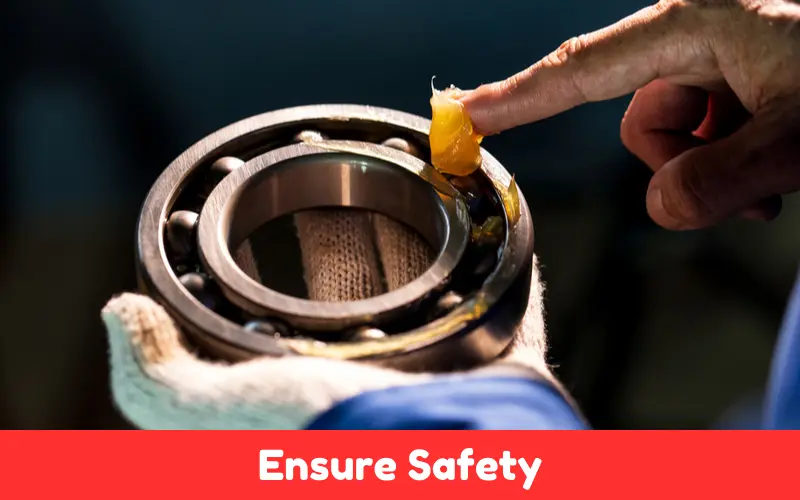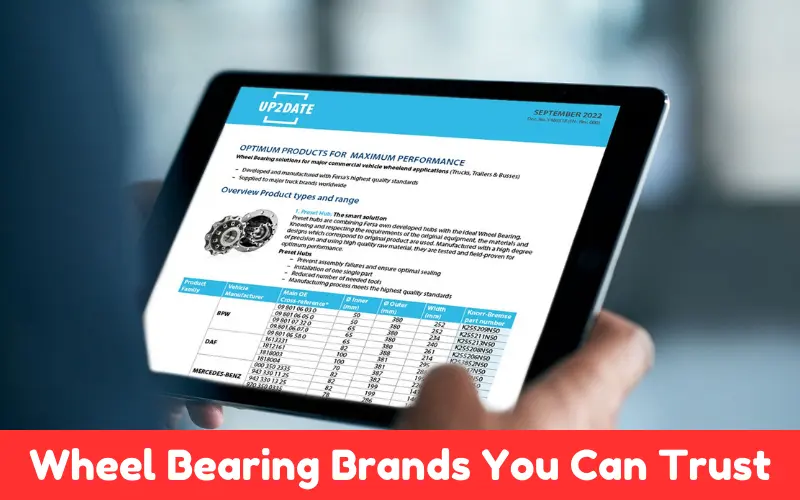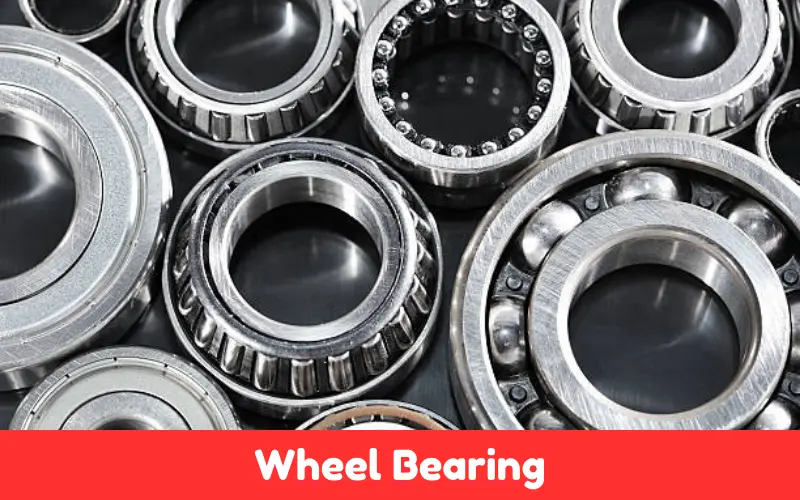Undoubtedly, the right type of wheel bearing makes a world of difference when you want to keep your vehicle safe and responsive. That’s why it’s important to pick a high quality wheel bearing for your vehicle.
After all, when a bad wheel bearing is installed, it can result in major and potentially deadly consequences, like wheel and vehicle failures and many others.
In this article, we will discuss some wheel bearing brands to avoid.
Article Summary
What Are The Worst Wheel Bearing Brands To Avoid?
So, with that said, here is a list of some wheel bearing brands to avoid based on user reviews, expert opinions, and reliability issues
1. XYZ Bearings
Though XYZ Bearings may still be a bargain, many users have reported failures from the very first ride. Mechanics have to replace the bearings prematurely at an extra cost due to excessive noise, improper fitment, or poor durability.
The complaint might run like this: Although XYZ Bearings are very inexpensive at [$59.99], our customers have reported numerous failures, resulting in dissatisfied users.
2. Cheap Auto Parts Co.
While Cheap Auto Parts Co.’s prices are by far the cheapest, you really get what you pay for. Over and over again, customers complain that these bearings are made with inferior materials, using below standard manufacturing processes.
In fact, most users report major wear and tear after very little use, which is definitely not something a car owner wants to risk.
3. Generic No-Name Brands
A no-name brand bought online or at a bargain store likely won’t have undergone the high level of testing and quality control checks that a reputable manufacturer follows.
It might well be made with inferior materials, which might not be up to spec for your car. As a result, it could fail safety standards and damage you and your vehicle.
4. Budget Bearing Inc.
That’s another reason why budgets should be balanced. The economics of those Budget Bearing Inc. parts look rosy at first sight, but they are not particularly durable, and, according to many complaints, they don’t perform as well as their more expensive equivalents.
While they will initially save you money in the short term, in the long term, many customers simply replace them too often.
5. Fly-by-Night Manufacturers
Avoid brands that have no reviews or online presence. Any manufacturer who can’t be bothered to build a web presence can’t be counted on to care about issues like parts certification or other standards set by organizations like ABEC.
The bottom line is that if they aren’t willing to invest in quality assurance, you would be wise to spend your money on something else. It’s just not safe to use inferior bearings that undergo no testing or validation.
The Importance of Quality Wheel Bearings
Investing in high quality wheel bearings is essential for several reasons:
Ensure Safety
Having a good set of bearings that don’t wobble will help to ensure that when you’re bombing down a hill, your wheels keep rolling and don’t come off the hub, which could lead to a really nasty accident.

Longevity
Better bearings are less likely to fail, so you won’t have to replace them as often, and you’ll save money in the long run.
Performance
Good bearings result in a more satisfactory performance overall with a smoother ride and easier handling.
Which Wheel Bearing Fails First?
Front wheel bearings generally fail first in most circumstances, not least because you’ll inevitably put more miles on them.
If you drive a front wheel drive vehicle, they cope with the higher loads from that, too, and they’re out there on the leading edge of your car, exposed to the worst that water, dirt, and road salt can do to accelerate wear and corrosion.
Does that mean you can’t say precisely which wheel bearings will fail, however, and that only experience can reveal what’s likely to happen? Not necessarily.
You might drive your car in ways that exacerbate uneven wear or that apply heavy loads to your vehicle’s driveline components. And some components are of higher quality than others.
Aside from experience and the accumulation of stress that inevitably comes with using a car for a significant time, the factors influencing which wayward bearing gives will be said to be those forming part of what’s termed the vehicles’ operating environment.
Wheel Bearing Brands You Can Trust
To sidestep cheaper bearings, shop at any of the following brands:
- Timken
- SKF
- FAG
- Moog
- NSK

They are known for the quality of their components, and car manufacturers highly recommend them and even use them for the newest versions of their automobiles.
Owners should invest in wheel bearings from these brands since they help ensure that their vehicles are safe and sound for driving.
FAQs On Wheel Bearings Brands To Avoid
Why Are Wheel Bearings Important For My Vehicle?
These help your wheels to turn while taking the entire weight of your car without them, your car likely won’t steer correctly and can lead to poor handling and bad brakes. If they aren’t working properly, you can end up with badly worn tires and poor handling (and, in extreme circumstances, your wheels falling off) none of which are safe.
When Should I Replace My Wheel Bearings?
Some symptoms that you might be experiencing with your wheel bearings are whining or humming noises coming from the wheels, brake drag, play or wobble in the wheels, uneven tire wear, and shakes or vibrations in the steering wheel while driving. You can always have a mechanic inspect your car if you suspect worn wheel bearings might cause the symptoms you’re experiencing.
What Are the Risks of Using Low Quality Wheel Bearings?
Poor quality wheel bearings often exhibit premature failures that lead to increased maintenance costs and serious safety problems. Inferior quality bearings are made from relatively poor material as compared to higher quality bearings. Instead of precise hardened steel, poor quality bearings are made from substandard steel, and they are not manufactured according to proper standards. As a consequence, they experience a shorter lifetime before they reach failure. They might even fail abruptly, causing wheel failure and, consequently, loss of control over the vehicle. Accidents can occur as a result.
How Often Should Wheel Bearings Be Replaced?
The time to replace them depends entirely on the quality of the bearings you have, the condition of the roads you are driving on, and your maintenance practices. As a rule of thumb, wheel bearings will last for anything between 85,000 and 100,000 miles. However, as always, follow your fitment recommendations and get them inspected often to catch problems before they appear! If you drive off road or in harsh conditions often, you may have to replace them sooner.
Can I Replace the Wheel Bearings Myself?
Although it is perfectly ok to replace the wheel bearings yourself as long as you have the proper tools and are somewhat mechanically inclined, it is recommended that you allow a professional mechanic to replace these parts for you as wheel bearing installation and alignment can be quite tedious processes that require the utmost precision. During their career, professional mechanics will build their experience and knowledge, which will ultimately give them the right edge to replace the wheel bearings correctly, thereby enhancing the overall safety of the part.
Conclusion
However tempting it might be to save money with cheap wheel bearing brands, the hazards far outweigh the savings you might make.
Inferior wheel bearings can result in premature failures, increased maintenance requirements, and, most importantly, issues with personal safety.
By steering around the brands above and instead buying from reputable manufacturers, you can make sure that your vehicle remains safe on the road. When it comes to essential parts like these, you should never scrimp on quality.


Thanks for the heads-up on these unreliable brands! I’ve been looking to replace my wheel bearings, and your list saved me from making a bad purchase. It’s great that you also mentioned trusted alternatives like Timken and SKF, which gives me confidence in making the right choice. The detailed breakdown of the risks of using low-quality bearings was really eye-opening. Definitely sharing this with fellow car enthusiasts.